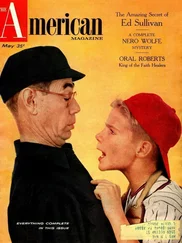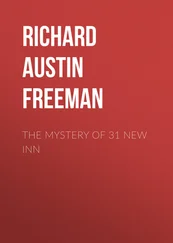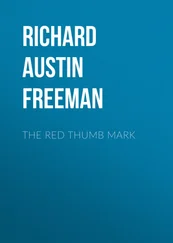Richard Austin Freeman - The Vanishing Man
Здесь есть возможность читать онлайн «Richard Austin Freeman - The Vanishing Man» — ознакомительный отрывок электронной книги совершенно бесплатно, а после прочтения отрывка купить полную версию. В некоторых случаях можно слушать аудио, скачать через торрент в формате fb2 и присутствует краткое содержание. Жанр: foreign_prose, Классический детектив, foreign_detective, foreign_antique, на английском языке. Описание произведения, (предисловие) а так же отзывы посетителей доступны на портале библиотеки ЛибКат.
- Название:The Vanishing Man
- Автор:
- Жанр:
- Год:неизвестен
- ISBN:нет данных
- Рейтинг книги:3 / 5. Голосов: 1
-
Избранное:Добавить в избранное
- Отзывы:
-
Ваша оценка:
- 60
- 1
- 2
- 3
- 4
- 5
The Vanishing Man: краткое содержание, описание и аннотация
Предлагаем к чтению аннотацию, описание, краткое содержание или предисловие (зависит от того, что написал сам автор книги «The Vanishing Man»). Если вы не нашли необходимую информацию о книге — напишите в комментариях, мы постараемся отыскать её.
The Vanishing Man — читать онлайн ознакомительный отрывок
Ниже представлен текст книги, разбитый по страницам. Система сохранения места последней прочитанной страницы, позволяет с удобством читать онлайн бесплатно книгу «The Vanishing Man», без необходимости каждый раз заново искать на чём Вы остановились. Поставьте закладку, и сможете в любой момент перейти на страницу, на которой закончили чтение.
Интервал:
Закладка:
So overpowered was I by this unexpected vision that my hand was on the bottom knob of a row of bell-pulls before I recollected myself; and it was not until a most infernal jangling from within recalled me to my business that I observed underneath it a small brass plate inscribed "Miss Oman."
The door opened with some suddenness, and a short, middle-aged woman surveyed me hungrily.
"Have I rung the wrong bell?" I asked—foolishly enough, I must admit.
"How can I tell?" she demanded. "I expect you have. It's the sort of thing a man would do—ring the wrong bell and then say he's sorry."
"I didn't go as far as that," I retorted. "It seems to have had the desired effect, and I've made your acquaintance into the bargain."
"Whom do you want to see?" she asked.
"Mr. Bellingham."
"Are you the doctor?"
"I am a doctor."
"Follow me upstairs," said Miss Oman, "and don't tread on the paint."
I crossed the spacious hall, and, preceded by my conductress, ascended a noble oak staircase, treading carefully on a ribbon of matting that ran up the middle. On the first-floor landing Miss Oman opened a door and, pointing to the room, said: "Go in there and wait; I'll tell her you're here."
"I said Mr . Bellingham—" I began; but the door slammed on me, and Miss Oman's footsteps retreated rapidly down the stairs.
It was at once obvious to me that I was in a very awkward position. The room into which I had been shown communicated with another, and though the door of communication was shut, I was unpleasantly aware of a conversation that was taking place in the adjoining room. At first, indeed, only a vague mutter, with a few disjointed phrases, came through the door, but suddenly an angry voice rang out clear and painfully distinct:
"Yes, I did! And I say it again. Bribery! Collusion! That's what it amounts to. You want to square me!"
"Nothing of the kind, Godfrey," was the reply in a lower tone; but at this point I coughed emphatically and moved a chair, and the voices subsided once more into an indistinct murmur.
To distract my attention from my unseen neighbours I glanced curiously about the room and speculated upon the personalities of its occupants. A very curious room it was, with its pathetic suggestion of decayed splendour and old-world dignity: a room full of interest and character and of contrasts and perplexing contradictions. For the most part it spoke of unmistakable though decent poverty. It was nearly bare of furniture, and what little there was was of the cheapest—a small kitchen table and three Windsor chairs (two of them with arms); a threadbare string carpet on the floor, and a cheap cotton cloth on the table; these, with a set of bookshelves, frankly constructed of grocer's boxes, formed the entire suite. And yet, despite its poverty, the place exhaled an air of homely if rather ascetic comfort, and the taste was irreproachable. The quiet russet of the tablecloth struck a pleasant harmony with the subdued bluish green of the worn carpet; the Windsor chairs and the legs of the table had been carefully denuded of their glaring varnish and stained a sober brown; and the austerity of the whole was relieved by a ginger-jar filled with fresh-cut flowers and set in the middle of the table.
But the contrasts of which I have spoken were most singular and puzzling. There were the bookshelves, for instance, home-made and stained at the cost of a few pence, but filled with recent and costly works on archaeology and ancient art. There were the objects on the mantelpiece: a facsimile in bronze—not bronzed plaster—of the beautiful head of Hypnos and a pair of fine Ushabti figures. There were the decorations of the walls, a number of etchings—signed proofs, every one of them—of Oriental subjects, and a splendid facsimile reproduction of an Egyptian papyrus. It was incongruous in the extreme, this mingling of costly refinements with the barest and shabbiest necessaries of life, of fastidious culture with manifest poverty. I could make nothing of it. What manner of man, I wondered, was this new patient of mine? Was he a miser, hiding himself and his wealth in this obscure court? An eccentric savant? A philosopher? Or—more probably—a crank? But at this point my meditations were interrupted by the voice from the adjoining room, once more raised in anger.
"But I say that you are making an accusation! You are implying that I made away with him."
"Not at all," was the reply; "but I repeat that it is your business to ascertain what has become of him. The responsibility rests upon you."
"Upon me!" rejoined the first voice. "And what about you? Your position is a pretty fishy one if it comes to that."
"What!" roared the other. "Do you insinuate that I murdered my own brother?"
During this amazing colloquy I had stood gaping with sheer astonishment. Suddenly I recollected myself, and, dropping into a chair, set my elbows on my knees and slapped my hands over my ears; and thus I must have remained for a full minute when I became aware of the closing of a door behind me.
I sprang to my feet and turned in some embarrassment (for I must have looked unspeakably ridiculous) to confront the sombre figure of a rather tall and strikingly handsome girl, who, as she stood with her hand on the knob of the door, saluted me with a formal bow. In an instantaneous glance I noted how perfectly she matched her strange surroundings. Black-robed, black-haired, with black-grey eyes and a grave, sad face of ivory pallor, she stood, like one of old Terborch's portraits, a harmony in tones so low as to be but a step removed from monochrome. Obviously a lady in spite of the worn and rusty dress, and something in the poise of the head and the set of the straight brows hinted at a spirit that adversity had hardened rather than broken.
"I must ask you to forgive me for keeping you waiting," she said; and as she spoke a certain softening at the corners of the austere mouth reminded me of the absurd position in which she had found me.
I murmured that the trifling delay was of no consequence whatever; that I had, in fact, been rather glad of the rest; and I was beginning somewhat vaguely to approach the subject of the invalid when the voice from the adjoining room again broke forth with hideous distinctness.
"I tell you I'll do nothing of the kind! Why, confound you, it's nothing less than a conspiracy that you're proposing!"
Miss Bellingham—as I assumed her to be—stepped quickly across the floor, flushing angrily, as well she might; but, as she reached the door, it flew open and a small, spruce, middle-aged man burst into the room.
"Your father is mad, Ruth!" he exclaimed; "absolutely stark mad! And I refuse to hold any further communication with him."
"The present interview was not of his seeking," Miss Bellingham replied coldly.
"No, it was not," was the wrathful rejoinder; "it was my mistaken generosity. But there—what is the use of talking? I've done my best for you and I'll do no more. Don't trouble to let me out; I can find my way. Good morning." With a stiff bow and a quick glance at me, the speaker strode out of the room, banging the door after him.
"I must apologise for this extraordinary reception," said Miss Bellingham; "but I believe medical men are not easily astonished. I will introduce you to your patient now." She opened the door and, as I followed her into the adjoining room, she said: "Here is another visitor for you, dear. Doctor—"
"Berkeley," said I. "I am acting for my friend Doctor Barnard."
The invalid, a fine-looking man of about fifty-five, who sat propped up in bed with a pile of pillows, held out an excessively shaky hand, which I grasped cordially, making a mental note of the tremor.
"How do you do, sir?" said Mr. Bellingham. "I hope Doctor Barnard is not ill."
Читать дальшеИнтервал:
Закладка:
Похожие книги на «The Vanishing Man»
Представляем Вашему вниманию похожие книги на «The Vanishing Man» списком для выбора. Мы отобрали схожую по названию и смыслу литературу в надежде предоставить читателям больше вариантов отыскать новые, интересные, ещё непрочитанные произведения.
Обсуждение, отзывы о книге «The Vanishing Man» и просто собственные мнения читателей. Оставьте ваши комментарии, напишите, что Вы думаете о произведении, его смысле или главных героях. Укажите что конкретно понравилось, а что нет, и почему Вы так считаете.












